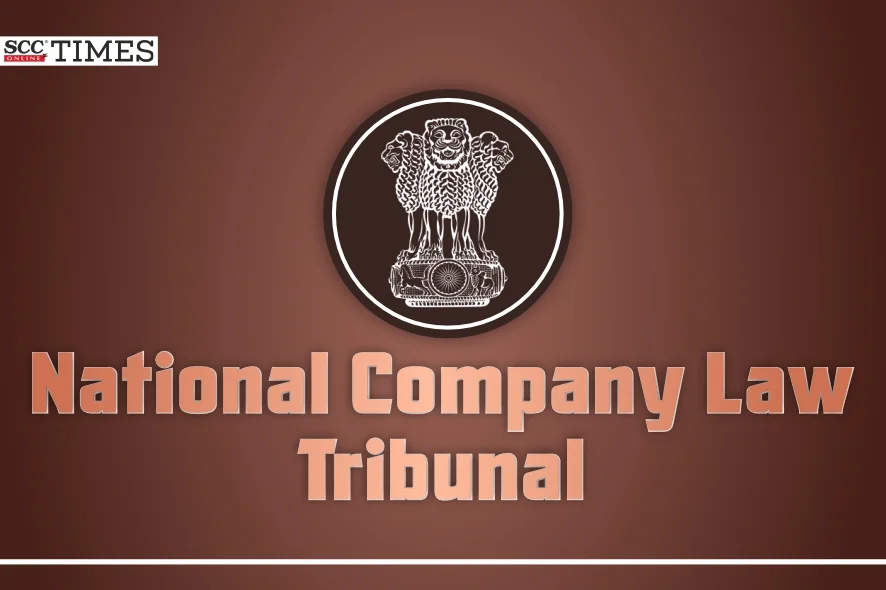National Company Law Tribunal, New Delhi: In an application filed under Section 95(1) of the Insolvency and Bankruptcy Code, 2016 (IBC), for initiating the Corporate Insolvency Resolution Process (CIRP) against the Personal Guarantor for the Corporate Debtor, a Division Bench of Bachu Venkat Balaram Das* (Judicial Member) and Atul Chaturvedi (Technical Member), held that the Section 10-A of the IBC does not apply to personal guarantors and admitted the insolvency resolution process against the personal guarantor based on the default on the loan and the failure to pay after the guarantee was invoked.
Factual Matrix
In the instant matter, the applicant, IndiaBulls Housing provided a loan of ₹75 crore to the Corporate Debtor, Shipra Leasing for housing projects, secured by a personal guarantee vide a Loan Agreement dated 07-12-2017. The Corporate Debtor and the personal guarantor defaulted on the repayment after failing to provide alternate security for impaired mortgaged assets. On 10-12-2020, a demand notice was served under Section 95(4)(b) of the IBC. The loan default occurred due to the failure of the corporate debtor and the personal guarantor to repay the loan following multiple notices issued by the Financial Creditor. The outstanding default amount was ₹14.73 crore along with pending TDS of ₹7.82 lakh as of January 2021. The Resolution Professional recommended initiating the insolvency process against personal guarantor based on the default in the guarantee.
Personal Guarantor’s Contentions
The personal guarantor argued that the default occurred during the suspension period under Section 10-A of the IBC. It was claimed that the dates of default differed in the demand notice and the Section 95 application. It was contended that the demand notice was not delivered properly. The personal guarantor further raised concern about ongoing litigation regarding the debt between the creditor and corporate debtor.
Moot Point
-
Whether the application under Section 95(1) of IBC against the personal guarantor maintainable?
-
Whether the default date falls within the suspension period under Section 10A of IBC?
-
Whether the discrepancies in the dates of default in the demand notice and petition affect the application’s maintainability?
NCLT’s Analysis
The NCLT rejected the applicability of Section 10A IBC on the personal guarantors. The NCLT relied on Amit Jain v. Siemens Financial Services (P) Ltd., 2022 SCC OnLine NCLAT 347, where the NCLAT held that Section 10-A of the IBC is not applicable to proceedings against the personal guarantors under Section 95 of the IBC. The NCLT held that following the ratio in Amit Jain (Supra) and the language of Section 10-A, the present petition cannot be held to be barred by Section 10-A of the IBC.
The NCLT noted that “Article 137 of the Limitation Act, 1963, read with Section 238-A of the Code, mandates a three-year limitation period for filing Section 95 petitions, calculated from the date of default specified in the petition.” The NCLT found that the dates of default (12-11-2020 in the demand notice and 27-11-2020 in the application) do not affect the maintainability of the petition as both fell within the statutory period of limitation.
The NCLT relied on Greater Mohali Area Development Authority v. Manju Jain, (2010) 9 SCC 157, wherein the Supreme Court observed that Section 27 of the General Clauses Act, 1897 gives rise to a presumption that when a notice is sent to the correct address by registered post, the service of notice has been affected. The NCLT stated that since the notice was sent to the correct address by registered post and email, the service can be presumed to be valid under Section 27 of the General Clauses Act, 1897. The NCLT further noted that the Corporate Debtor was already admitted to CIRP, and this precluded any further challenges to the debt’s validity in the personal guarantor’s insolvency process.
The NCLT found that the Resolution Professional had given reasonable opportunity following the principle of Natural Justice and had taken into consideration the various documents and had come to a conclusion that the Personal Insolvency Resolution Process be initiated against the Personal Guarantor.
NCLT’s Decision
The NCLT held that the objections raised by the Personal Guarantor are “not substantiated with adequate evidence and are not tenable.” The NCLT held that the grounds/reasons given by the Resolution Professional for the initiation of the Personal Insolvency Resolution Process against the Personal Guarantor are satisfactory and accepted the Resolution Professional’s recommendation. The NCLT admitted the application, initiated the Personal Insolvency Resolution Process and directed the Resolution Professional to take necessary actions as per the IBC and report back to the NCLT.
NCLT’s Order
-
The moratorium under Section 96 of the IBC ceases, and a fresh moratorium is imposed under Section 101, thereby preventing any new or pending legal actions, asset transfers, or creditor proceedings.
-
Directed the Resolution Professional to issue a public notice within 7 days to invite claims from all creditors, who must register their claims within 21 days.
-
The Debtor, in consultation with the Resolution Professional, must prepare a repayment plan. The Resolution Professional must submit this plan to the Tribunal within 21 days after the creditors submit their claims.
-
If required, the Resolution Professional may summon a meeting of creditors, following the procedures under Sections 106-111 of IBC.
-
Directed the Financial Creditor to pay ₹2,00,000 to the Resolution Professional for expenses incurred during the process.
[Indiabulls Housing Finance Ltd. v. Mohit Singh, 2024 SCC OnLine NCLT 3568, Decided on 04-09-2024]
*Judgment by Bachu Venkat Balaram Das (Judicial Member)
Advocates who appeared in this case :
Mr. Abhishek Anand, Mr. Karan Kohli, Mr. Krishna Sharma, Counsel for the Personal Guarantor
Mr. Raghavendra Mohan Bajaj, Mr. Kanav Agarwal, Counsel for the Resolution Professional
Mr. Tushar Randhana, Counsel for the Respondent






